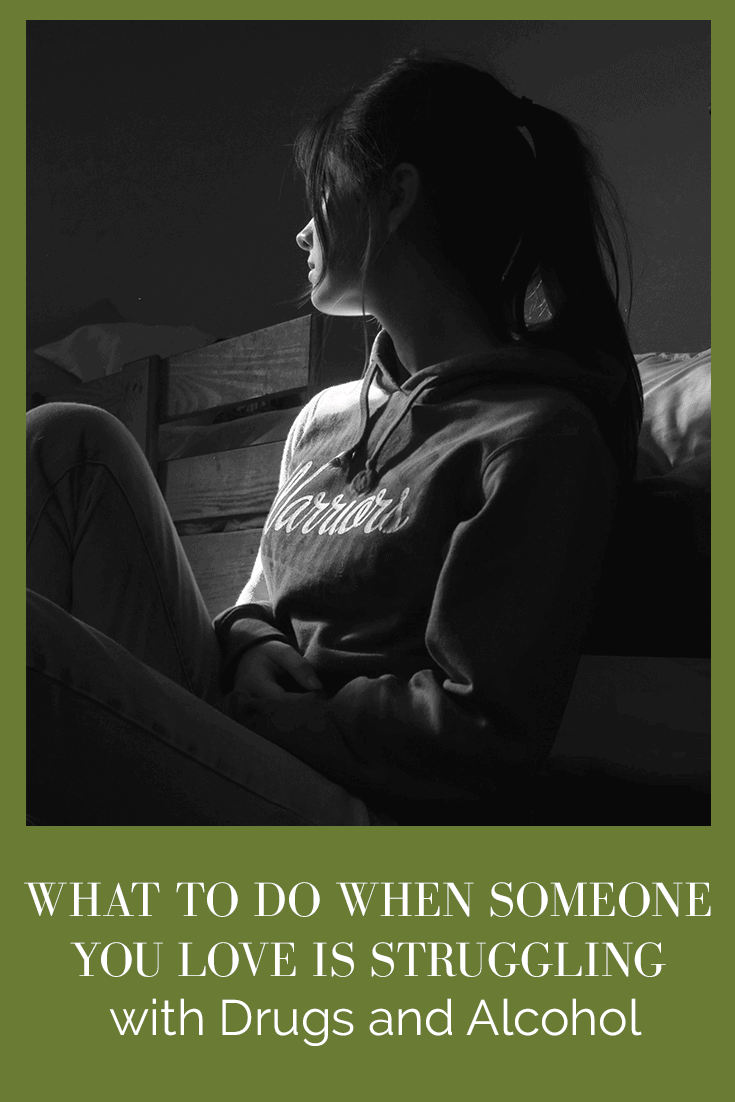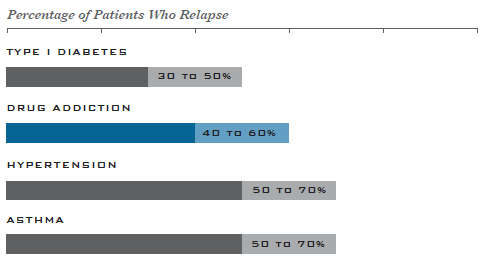
As a recovering drug addict myself, this is a topic near and dear to my heart. Today I’m giving you everything you need to know to approach any person who’s struggling with drugs and alcohol from a place of confidence and love.
Let’s Get Clear on What We’re Talking About
There are a few things we need to square away before I tell you what you can be doing if someone you love is struggling with drugs and alcohol.
First things first: everything from alcohol to pot to nicotine to heroin are drugs. So, I won’t be separating out alcohol today – I’m just going to say drugs and just know that it’s included.
Second, in the last iteration of the DSM, drug and alcohol addiction and abuse was formally changed to a diagnosis of “substance use disorder.” Having said that, I’m also going to be using the terms addiction and addict, for ease of explaining things to you.
Third, substance use disorder is a disease. What’s different than most other diseases is that it affects the brain – it’s a brain disease, not a body disease. Because it affects the brain, it means the symptoms are mostly behavioral and emotional, not what you can see physically or point to on a test result. Sadly, this leads a lot of people to think that addicts are trying to find an excuse for their use and behavior. But the truth is that repeated use of a drug changes the way your brain feels pleasure, which causes physical changes to neurons and neurotransmitters in your brain.
This brain disease progresses to the point that there’s literally an inability to control the use of the substance so when people become addicted, they’ll continue to use despite any negative consequences they’re having. These brain changes remain after the use stops!
Fourth, there are specific criteria that must be met to say someone has substance use disorder (an addiction). Interestingly, none of the criteria relate to how much a person uses. For example, you can come home every night after work and have a martini and be an alcoholic and you can come home every night after work and have a martini and not be an alcoholic. It really depends on your behavior around the drinking or drug use.
There are 11 criteria noted in the DSM. You need to have at least two within a 12-month period to be diagnosed with substance use disorder.
- Substance is often taken in larger amounts or over a longer period of time than intended.
- There’s a persistent desire or unsuccessful efforts to cut down or control use.
- A lot of time is spent in activities necessary to obtain, use or recover from the effects of the substance.
- Craving or a strong desire to use.
- Recurrent use resulting in failure to fulfill major role obligations at work, school or home.
- Continued use despite social or interpersonal problems causes or exacerbated by the effects of using.
- Important social, work, or recreational activities are given up or reduced because of use.
- Using even when it’s physically hazardous.
- Using despite a physical or psychological problem that’s likely been caused or exacerbated by using.
- Tolerance (more to get high/drunk/get the desired effect or diminished effect when using same amount).
- Withdrawal (this also means using so you don’t go into withdrawal)
The risk of addiction and how fast you become addicted varies by drug. Some drugs, like opiates or painkillers, have a higher risk and cause addiction more quickly than others.
Is it Addiction or Something Else?
Sometimes it’s hard to know if you’re looking at a substance use issue or something else. In general, I say to watch for these things:
- Problems at school or work: missing school or work, losing interest in school or work, or a drop in grades or performance
- Physical health issues: Changes in appetite or sleep, general lack of motivation or energy, weight gain or loss, changed appearance, chronic unexplained health issues
- Change in appearance: this could be stopping general hygiene or showing no interest in how they look (clothing, grooming, etc.)
- Changes in behavior: lying, sneakiness, secret-keeping, stealing, isolating, changing friend group, major changes in relationships.
- Changes in mood: irritability, impatience, angry outbursts, emotional flooding, numbness, withdrawn, mood swings, hyper or super elevated mood
Why Do Some People Get Addicted?
Just like other mental health disorders like depression and anxiety, substance use disorder often has multiple contributing factors. But, the two main ones are:
- Genetics or Nature: This is definitely a disease that runs in families. Your chances of becoming addicted are higher if it runs in your family.
- Environment or Nurture: There are many environmental factors that contribute to addiction including how often and early someone is exposed, trauma, accessibility, normalcy of use, and family culture (beliefs and attitudes). We also know that trauma and other disorders (such as anxiety or depression) can play a part.
The 6 Things to Know and Do if Someone You Love is Struggling with Drugs and Alcohol:
1. They’re them but not them. Their brain has been hijacked. This is a brain disease. Logic and reasoning are not going to win the day. By the time a person is addicted, their behaviors are conditioned, and the brain changes that have occurred make stopping seem like an impossibility.
2. It’s not a choice. Yes, no one forced them to take that first drug or drink. But, the vast majority of people are able to make that choice with no long-term consequences and no addiction. In fact, about five out of six people who try a drug will not get hooked on it. You’ve got no way of knowing what that first “fun” use would turn into. This means that they’re not choosing substances over other things. This is not a case of them loving drugs or alcohol more than you or their children or their job. It’s a disease.
3. Substance use has the same rates of relapse as other chronic illnesses. Like other chronic diseases, addiction can be managed successfully (generally through some form of treatment). The chronic nature of the disease means that relapsing or “slipping” is very possible. But it’s important to remember that relapse rates are similar to those of other chronic medical illnesses such as diabetes, hypertension, and asthma.

Unfortunately, when relapse occurs many consider treatment a failure. This really isn’t the case: successful treatment for addiction typically requires continual evaluation and modification, similar to the approach taken for other chronic diseases. For people suffering from addiction, relapses don’t indicate failure, they mean that treatment needs to be reinstated or adjusted, or that alternate treatment is needed.
I also want to remind you that detox is not considered treatment. It’s an initial intervention for medical stabilization but remember that addiction is a disorder that has literally rewired the brains’ reward system. This means that the person doesn’t have self-control just because they’re detoxed. Their judgment will remain affected for a long time. This is a brain disease that will not be fixed in a week or even a month. It’s going to take time and consistent and repeated effort to make long-term changes.
4. If there’s an easier, softer way, they’ll take it. So, don’t make it easier or softer. Be loving but not codependent. If you make their addiction easier to have, they’ll keep doing it. Don’t protect them from the pain or consequences of their use. Lovingly hold boundaries! Loving detachment is the key as well as knowing and keeping your boundaries. Don’t be codependent and stay away from CRAVE.
5. Get support for yourself: You can’t fill a glass from an empty pitcher. At the end of the day, you’ve got to make sure that your own mental health is intact. There are free 12-step support groups like Alanon and Codependency Anonymous or you could also look into getting therapy for yourself. You can’t control the other person, but you can certainly control yourself.
6. Motivational Interviewing is your best tool for creating change. There’s an awesome tool that we counselors use to deal with resistant and defensive clients and motivate them to make critical changes. It’s called Motivational Interviewing (MI) and it’s based on the work of William Miller and Stephen Rollnick. This approach has been well-researched and is a Substance Abuse and Mental Health Services Administration (SAMHSA) evidence-based, best-practice model.
I’ve been teaching “regular” people (like you) to use MI concepts so they can be effective in dealing with conflict in their everyday relationships. The good news is that I’ve created a short and simple handout explaining how to do it so you can effectively speak to someone struggling with alcohol and drugs and move the conversation forward.
Enter your name and email below to get the handout!
No matter what else, focus on love in all the interactions you have.






